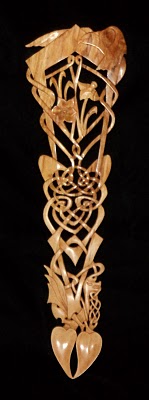Blogs
The winner for this year's Left Coast Eisteddfod Lovespoon is Kathy Bushman of Milwaukie, Oregon!
Kathy is an AmeriCymru member and purchased her winning ticket at this year's Night of the Living Bards event in Portland, Oregon. "I've never won anything in my life and this is so beautiful, I can't believe it's mine! Thank you so much and thank you so much to the artists who made this!"
This is the second year for the Left Coast Eisteddfod and the Left Coast Eisteddfod Lovespoon, a custom started by artist David Western of British Columbia, who was joined this year by artist Laura Jenkins-Gorun , of Ohio. David has been a well-known lovespoon carver for many years, his work has been commissioned all over the world and appears in museum collections, including St. Fagans in Wales, he teaches carving and is the author of Fine Art of Carving Lovespoons .
We very gratefully thank David and Laura for their very great contribution to the Left Coast Eisteddfod, for their hard work and their incredible, incomparable art.
This Year's Spoon
Welsh actor Rhys Ifans has just been confirmed to play a character called The Lizard, a villain in the upcoming Spiderman movie. Spiderman 4 for those keeping track.
The term Sin Eater does sound like the title of a dodgy horror film. In fact perhaps it is. I wouldnt know. But I came across it in a news item on the BBC last month (September 2010)
It is a fascinating idea and perhaps you will not be surprised to learn that this ancient tradition survived in the east of Wales and just over the border in Shropshire and Herefordshire longer than anywhere else. Indeed, it was still practiced into the early 20th century.
It is a bizarre adoption process I suppose. After a death someone would be paid to eat and drink over the body. As a result of the ritual the sin eater would take on the sins of the dead person and their soul would then be able to rest, free of sin. The church wasnt that keen on the idea but often the local vicar would turn a blind eye in order to keep his parishioners happy.
Often the ritual was performed by a beggar, although some villages had a resident sin-eater. They would turn up at the bedside, where a relative would place a crust of bread on the chest of the dying and pass a bowl of beer to him. I imagine that if you thought you were just a bit under the weather and the sin eater was lurking in the background, waiting for a snack, you would start to worry. Anyway, after praying or reciting the ritual, he would then drink and eat the bread, thus adopting the sins of the dying.
As I said, it was mentioned on the BBC in connection with the grave of Richard Munslow who died in Ratlinghope in 1906. The grave stone has recently been restored since he was a well known farmer in the area who had a second career as a sin eater, munching on scraps of bread whilst others squabbled about the inheritance. I would have thought that for those with rather more interesting lives, a three course meal would have been more appropriate than a dry crust in order to absolve them of sin, but perhaps I am being unkind. However, I have to say it is odd to think that this sort of thing was going on in the lifetime of my grandparents.
I end this piece with this passage by B.S. Puckle in a book called Funeral Customs (1926) which goes to show how odd people can be.
"Professor Evans of the Presbyterian College, Carmarthen, actually saw a sin-eater about the year 1825, who was then living near Llanwenog, Cardiganshire. Abhorred by the superstitious villagers as a thing unclean, the sin-eater cut himself off from all social intercourse with his fellow creatures by reason of the life he had chosen; he lived as a rule in a remote place by himself, and those who chanced to meet him avoided him as they would a leper. This unfortunate was held to be the associate of evil spirits, and given to witchcraft, incantations and unholy practices; only when a death took place did they seek him out, and when his purpose was accomplished they burned the wooden bowl and platter from which he had eaten the food handed across, or placed on the corpse for his consumption"
A bit mean when all is said and done. You provide a valuable service and this is how you are treated. No wonder that as a career option it never really caught on.

Life in the Coal House reminds us of those pleasant and not so pleasant experiences and contains the family’s personal photographs. The experience certainly changed the family’s way of thinking. Debra comments, “I look at things differently now… having lived in circumstances where I know that, if the fire went out, there would be no food for the family, well, that does change your outlook on all sorts of things. I really appreciate thinks now that I used to take for granted.”
Cerdin adds, “I’m extremely proud of the way that my family coped with their various experiences in the Coal House… the children went through massive changes, like speaking another language as well as adapting to a whole new way of living, and they did all this without complaining or protesting too much.”
Life in the Coal House may make interesting reading for the Snowdonia house incumbents. Life in the Coal House retails at £3.95 and is published by Y Lolfa in October 2010.

We have been making the most of the glorious late Autumn sunshine here on Gower.
As soon as the dog-ban is lifted on the wonderful beaches we take the three Yorkies down to the local beaches for a blast on the expanse of sand at low tide. Many are less than 10 minutes drive by car.
The fishermen were hoping to catch Bass on Caswell Bay .... yesterday we talked to fishermen on the pier alongside where the Cork Ferry docks in Swansea Docks, and they were catching Ray, Plaice and Eels!
I love this photo and I hope you like it too!
Rhianne
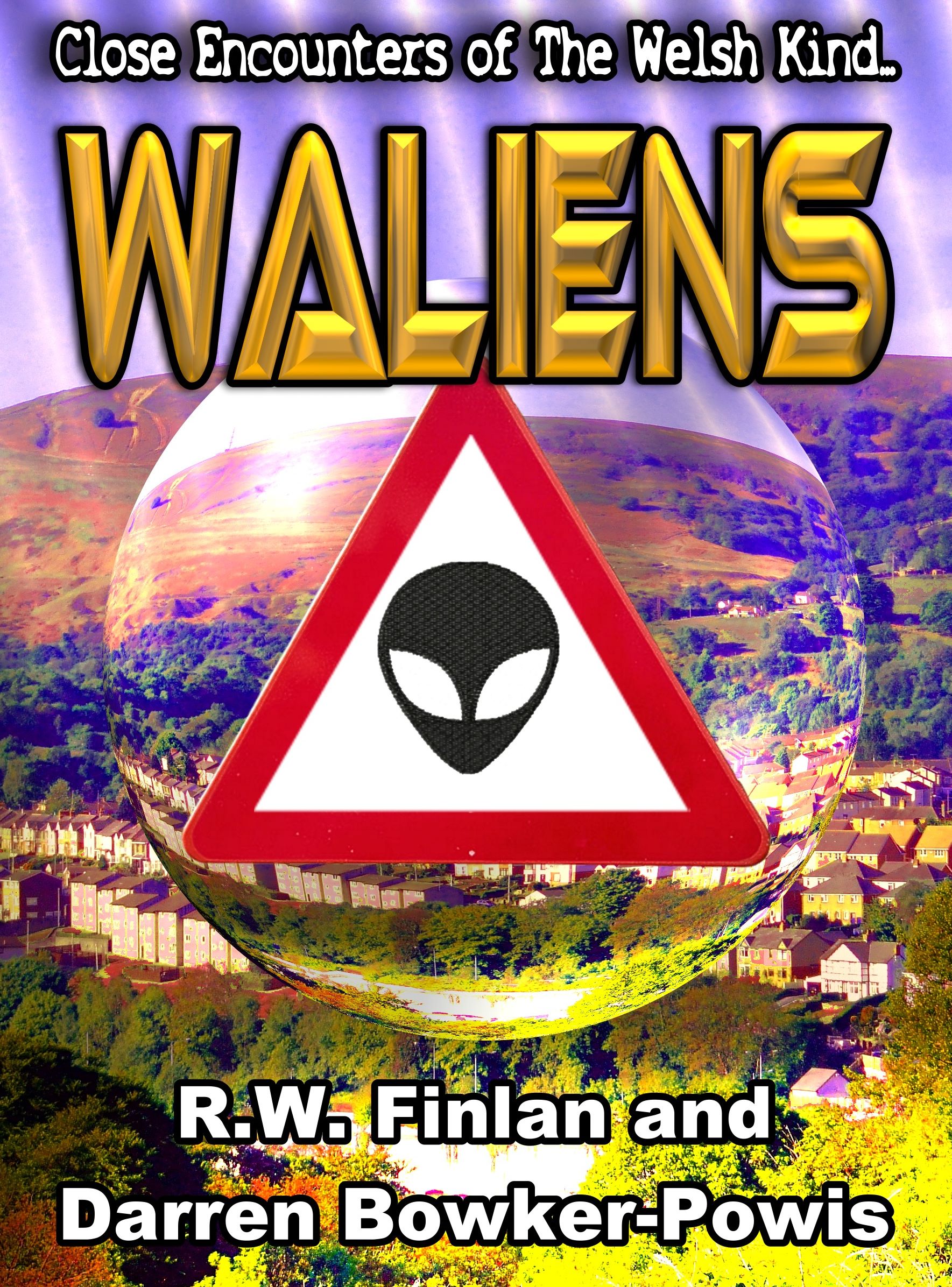
2 . How long has Daric been publishing. Care to tell us a little about your history?
DBP : " Richard and myself are both former journalists. We first worked together on the Pontypool Free Press and have been friends ever since. Our first book together, Weird Tales from Weird Wales, was a collection of spoof newspaper stories from a paper in a fictional Welsh town. We later expanded on the idea by writing a novel set in the same fictional Welsh town.
The idea for Waliens has been buzzing around my head for over twenty years, but I struggled for a long while to get in down on paper. I talked about it with Richard and with the addition of his ideas and suggestions, everything just clicked into place. We decided to write it jointly and drew on well documented Welsh UFO cases such as The Dyfed Triangle and The Berwyn Mountains incident, along with some less well known ones closer to home, in Cwmbran, Varteg and Trevethin. The panic and paranoia depicted about alien invaders in the story is something of comment about the prejudices and fears some people have about immigration, but overall, Waliens is meant to be an entertaining read and not a soap-box lecture.
RWF : " It is basically a satire on current trends within the newspaper publishing industry and the running down of Welsh industry. There are a number of social issues which we address such as the paranoia of an alien race taking over. But it is intended to be a fun and light read. "
4. You recently published 'Return of The Kin'. Who are the Kin?
5. Would you say that Wales has a rich tradition of horror/fantasy or imaginative fiction? If so who would you recommend to our readers?
6. Are you currently looking for manuscripts or will you be in the near future?
7. Who are you reading at the moment?
8. Where can our readers go to get Daric titles?
9. Any final message for the readers and members of AmeriCymru?
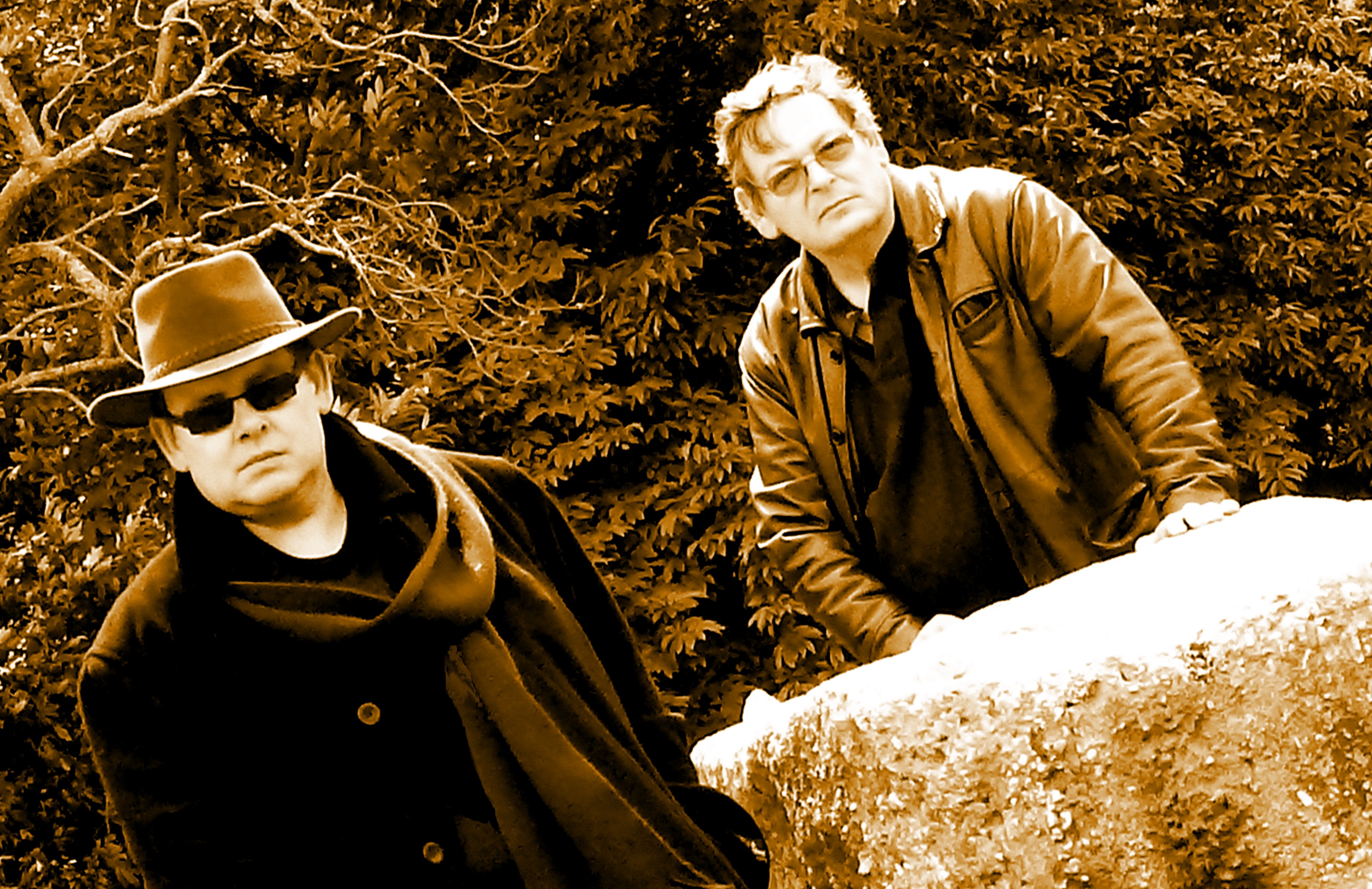
Left Coast Eisteddfod Short Story Competition 2010 ....And The Winner Is......
By Ceri Shaw, 2010-10-12
"Dear Ceri ,
The runner up is Ceri Norman's Carn Ingli/Hill of Angels There were also honorable mentions for " It Only Hurts When They Play Love Songs" by Maude Larke and "Opportunity Knocks" by Neil Forbes.
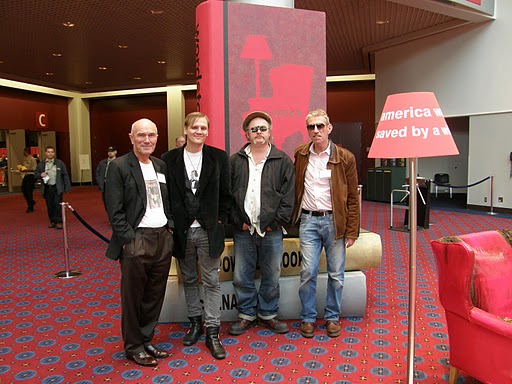
Welsh and Welsh American authors at Wordstock, Portland 2010.....from left to right Peter Griffiths , Lorin Morgan Richards , Niall Griffiths , Chris Keil
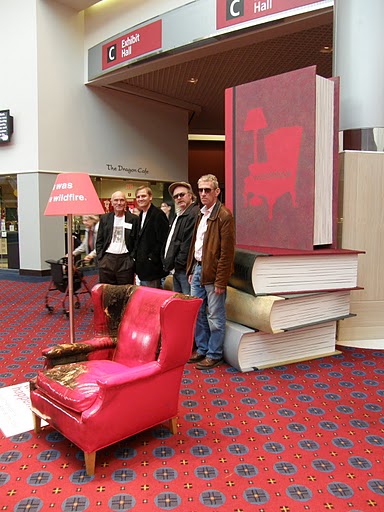
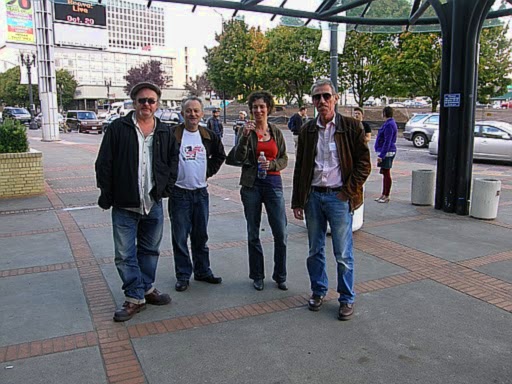
outside the Portland Convention Centre and site of Wordstock 2010
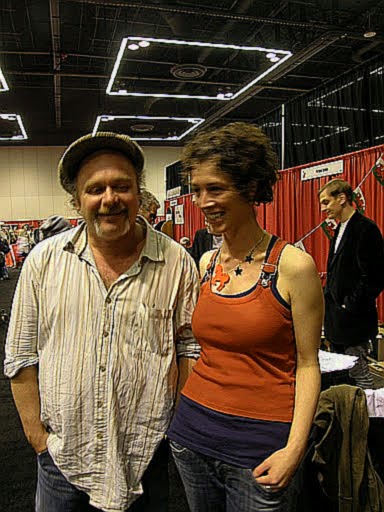
Niall Griffiths and Deb Jones Taff'ing up Wordstock, tidy!
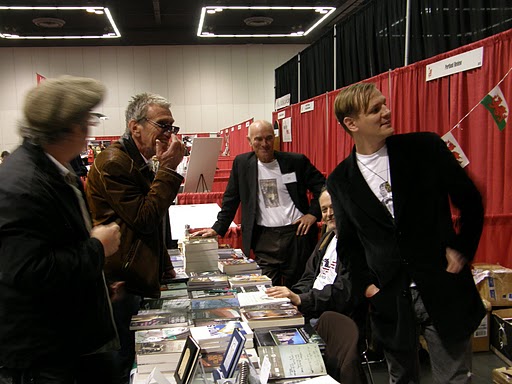
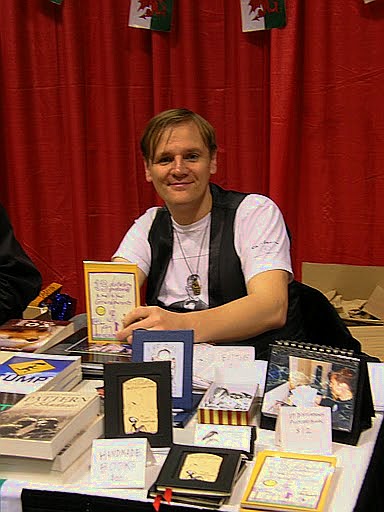
Lorin Morgan-Richards shows off his " 13 Disturbing Postcards to Send to Your Grandparents "
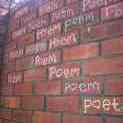
We have received the following adjudication from our judge, Peter Thabit Jones:-
"The winner and the runner up in the AmeriCymru Left Coast Eisteddfod Poetry Competition (English language) are:
Iberia by Bruce Lader FIRST PRIZE
He Paints by Jolen Whitworth SECOND PRIZE
I would also like to say that the poems by Elnaz Rezaei Ghalechi and Darrell Lindsey should be noted as poems that were in my thoughts during the final adjudication stages. All the poems submitted by Bruce Lader and Jolen Whitworth are controlled, crafted, and successful poems. In the end, the two awarded the prizes kept calling me back.
It has been a real pleasure and a good experience judging all the entries for this years competition."
Many thanks Peter and Congratulations/Llongyfarchion to our winners, Bruce Lader and Jolen Whitworth. Read the winning entries here:-
Iberia by Bruce Lader


